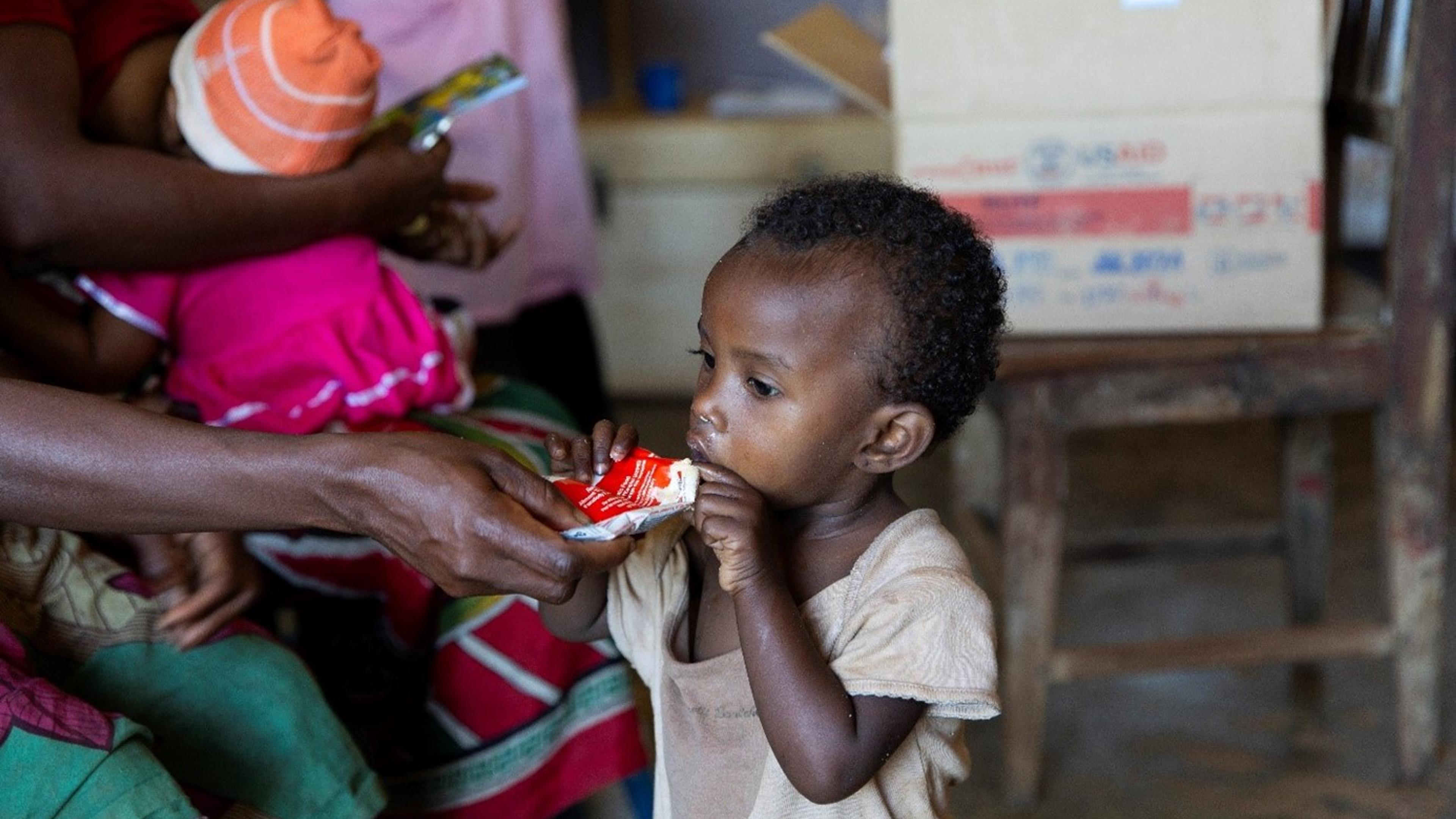Optimised supply chain model for therapeutic foods to malnourished children in Madagascar
 © UNICEF
© UNICEFWhat is the challenge?
Severe acute malnutrition is a major threat to children's health in Madagascar. Each year in southern Madagascar about half a million children suffer from wasting (the more life-threatening form of malnutrition) including over 100,000 with the most severe form of wasting. This type of malnutrition requires a timely and efficient life-saving intervention as it is estimated that a child with severe wasting is 9 to 11 time more likely to die because of this condition. Each year UNICEF purchases more than $4 million worth of ready-to-use therapeutic foods to save the lives of children suffering from severe wasting. UNICEF estimate (from global literature) that between 7-10% of those products would be lost due to mishandling, losses, and inefficiency in the logistics and distribution process. Not to mention the dramatic impact it has on malnourished children’s lives when those products are not made available on time at health centres.
What is innovative about the project?
In response to this problem, UNICEF will partner with a private sector partner to implement a humanitarian innovation consisting of placing GPS and Radio Frequency Identification (RFID) traceability system into selected cartons of therapeutic foods. These trackers will generate real time data on the whereabout of these therapeutic foods and their handling conditions. The data generated will serve as modelling for an optimized distribution system to make this humanitarian supply chain more efficient.
What are the expected outcomes?
The use of GPS and RFID technology to track therapeutic foods in real time will provide unprecedented visibility across the entire supply chain. The system will detect anomalies, provide a proactive response to prevent diversions and ensure that products reach their intended destinations. This project inaugurates a data-driven approach to tackling malnutrition more effectively hence contributing to:
• Real-time visibility of product movements and location
• Reduction in stock-outs and diversions
• Improved rate of recovery from severe malnutrition
• Improved governance and transparency in the supply chain
Who are the project partners?
UNICEF, the Madagascar Ministry of Health, a private sector partner and the Madagascar National central medical store.